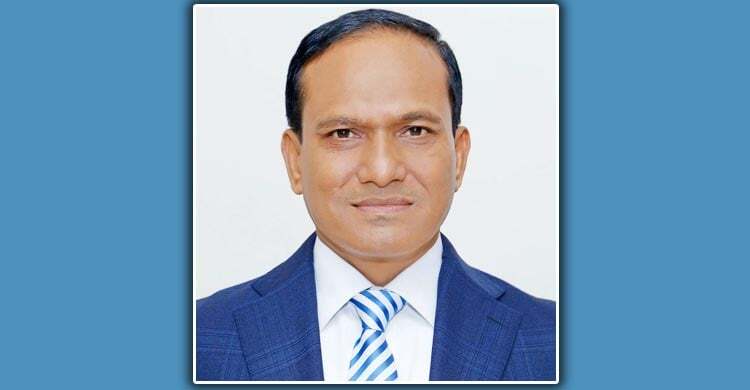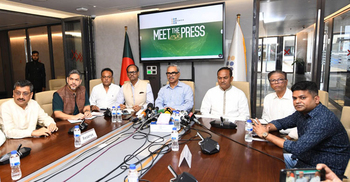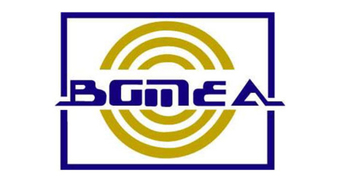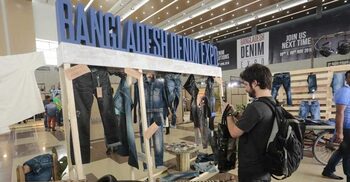Ensuring fair prices for exporters utmost priority: BGMEA president

As the production cost increased sharply, ensuring fair prices from global brands and retailers for apparel exporters through negotiation will be my top priority, Bangladesh Garment Manufacturers and Exporters Association (BGMEA) President SM Mannan Kochi told Jago News in an interview. Jago News's Ibrahim Hossain Ovi interviewed him.
In the biennial election for the 2024-26 tenure held on March 9, 2024, Kochi-led Sammilito Parishad won all 35 posts of directors. On April 6, Kochi took charge of the association as the president for a two-year tenure. He expressed his plans to make the sector vibrant and sustainable.
What kind of challenges is the RMG sector facing? How do you want to tackle it?
In the last five years, production costs increased by 57% making the sector compliant and safe. In addition, prices of utility services including gas and electricity also soared. The lending rate rose to 13-15 per cent from the single digit. However, the global retailers did not hike the prices of goods rather in some cases they lowered them.
As a result, exporters are struggling to remain competitive in global markets. Mostly, the medium and small factory owners are fighting to survive.
As the sector leader, my top priority will be ensuring fair prices for the manufacturers through negotiation with the retailers and brands.
To retain export growth and remain competitive in the global markets, getting fair prices from global fashion brands and retailers is the biggest challenge right now for the apparel sector as the production costs increased sharply. As the president of BGMEA, our top priority will be ensuring fair prices through negotiation.
How do you want to deal with the issue with brands and retailers?
It is a common trend, buyers always try to offer low prices but they demand compliance and safety measures in place.
We are complying with their demands for safety standards and compliance but they are not paying heed to our price.
In a recent meeting with the visiting United States Trade Representative (USTR) team held in Bangladesh, I firmly expressed our demands for fair prices and urged them to put it to the brands and retailers.
From BGMEA we sought support and collaboration from the US government to ensure fair minimum prices of apparel items and a unified code of conduct for social audits.
In phases, we will meet different stakeholders and buyers' platforms where the issue of fair prices will be placed. On the other hand, we will hold talks with ambassadors of different countries to make them understand the issue and call for cooperation.
It would be very difficult for the sector to survive unless the prices are increased. The number of active factories came down to 2,200 from 5,000 in the last couple of years.
It is a common responsibility and I believe our partners will consider it and come up with better prices for manufacturers.
Export oriented SME apparel entrepreneurs are in a tight corner in automation and machinery upgradation. What is your plan to help them to survive?
Automation and machinery upgradation are crucial for retaining competitiveness in the global markets. Though big companies upgraded themselves in terms of automation and technology adoption, small and medium entrepreneurs are lagging behind because of funds shortages.
SME entrepreneurs are the future of the country and they would be the next giant in exports. So, the government has to provide financial support such as low cost funds and tax waivers to help them grow up. For the technology and machinery upgradation, the government has to provide technical support also.
Exemption of tax for safety equipment would be a great assistance to the sector for making it compliant.
What kind of support will you seek from the government to improve the business climate for the RMG industry?
In terms of infrastructure, the government has done a lot to ease the business environment through the implementation of several mega projects and road connectivity such as Padma Bridge, Metrorail and improving different roads to four lanes.
However, the customs and tax related harassment by ill motivated officers is creating obstacles in the way of smoother operation. In the name of HS code and searching for documents, they harass exporters and demand bribes.
I will meet the National Board of Revenue (NBR) and customs related departments and urge them to stop unnecessary complexity and take action against the corrupt officials.
For economic development, we have to make the business environment easier and friendly to exporters and the move is to bring speed to business.
LDC graduation will erode duty free benefits. How to cope with the impacts?
After graduation to a developing country in 2026, Bangladeshi exporters will lose duty free market access in many countries and this will leave the sector in tougher competition.
We will enjoy duty free access to the European Union till 2029 but have to start negotiations to avail the opportunity in different forms in the post-graduation era.
On top of that, the government has to devise a strategy to avail duty free benefits from our trade partners through bilateral trade agreements.
Beyond this, the government can provide assistance alternatively to the business community. For example, the government can offer low cost funds and provide utility services for the manufacturers at an affordable tariff rate and tax waiver.
What are the strengths Bangladesh's RMG sector has to brand and attract global retailers?
Bangladesh has set an example in improving safety standards to ensure a safe workplace for workers. With brand cooperation, government support and huge investment by industry people, Bangladesh is now the safest industry.
On the other hand, Bangladesh houses 215 green certified factories, the highest in the world. Our manufacturing is more sustainable than our competitors.
These are the tools to brand Bangladesh as a reliable sourcing destination for apparel items.
Ibrahim Hossain Ovi/MSU





